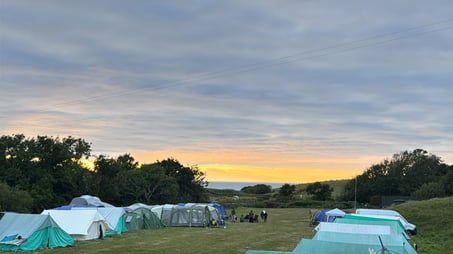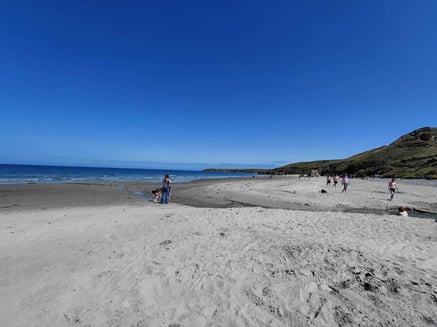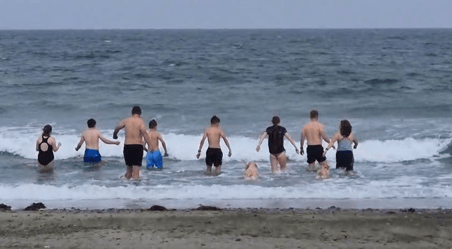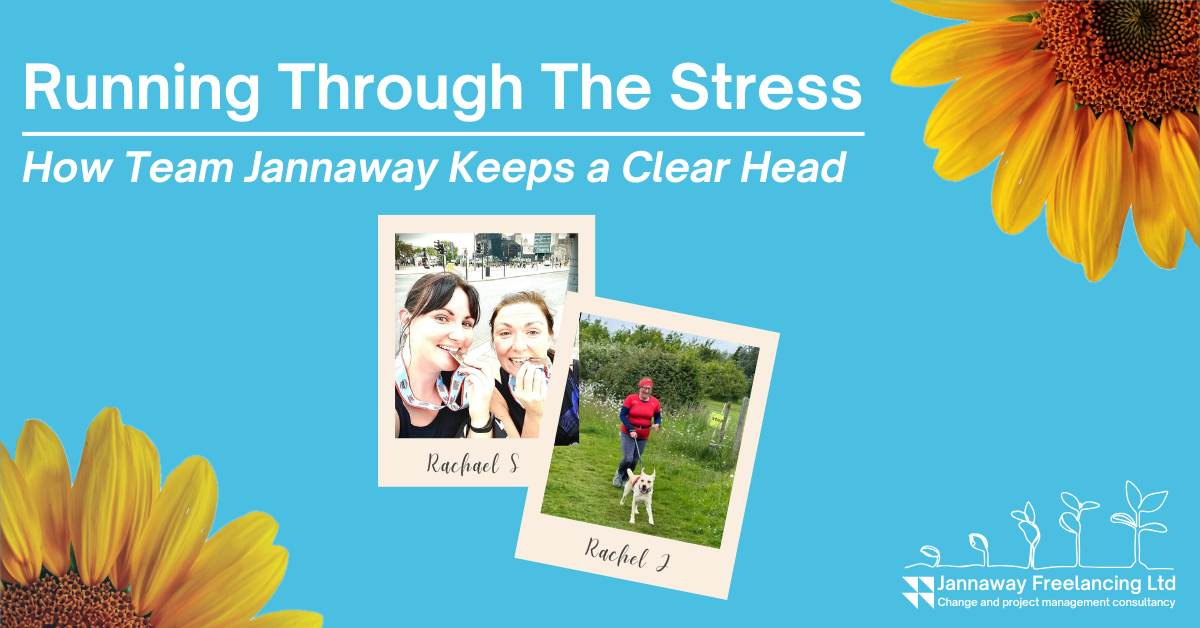Sunrise Swims & Sea Breezes: Cold Water, Camping and a Clearer Mind

10 days. A tent. Sixty kids. And the wild Welsh coast.
It might sound like chaos (and yes, at times it was), but this recent camping trip in Wales had some really unexpectedly calming and energising experiences. Surrounded by the laughter of children, crackling campfires, and the salty sea breeze, there was something deeply restorative about stepping away from daily routines and into nature.
But the true magic happened each morning, before the sleepy heads emerged from tents, before breakfast duty or activity planning began. A small group of us started the day with a swim in the sea. No wetsuits.
No warm-up. Just us, the crisp Welsh waters, and the rising sun - and yes, it was cold! The kind of cold that makes you yelp as you dive in, that forces every thought from your head and replaces it with nothing but the present moment. But as the initial shock wore off, something incredible happened: we felt awake, calm, focused, and oddly, happy.
🌊 The Science Behind the Splash

As it turns out, there’s real science behind the post-swim glow.
Cold water immersion, even just a few minutes, has been shown to activate the sympathetic nervous system, increase levels of dopamine (the “feel-good” hormone), and reduce inflammation in the body. A 2007 study published in the International Journal of Circumpolar Health found that winter swimmers experienced lower tension, fatigue, and depression, and higher energy levels compared to non-swimmers.
More recently, researchers have been exploring the link between cold water exposure and improved mental health. A case study published in the British Medical Journal in 2018 followed a young woman with treatment-resistant depression who took up open water swimming. Over time, her symptoms significantly reduced, and she was able to stop medication altogether, with her doctors citing the cold water as a contributing factor.
But it's not just about the cold. Being by the sea itself has powerful mental health benefits. The sound of waves, the vastness of the horizon, and the rhythmic movement of the tide all have a calming effect on the brain. In fact, a 2019 study from the University of Exeter found that people living close to the coast report better mental health than those further inland, even when accounting for factors like income and age.
🏞️ A Natural Reset
Those sea swims quickly became our daily ritual. A pause. A reset. A moment to reconnect with our breath, our bodies, and the beautiful surroundings. It gave us the headspace and resilience to face the joyful whirlwind of sixty children and all the unpredictability that comes with a tent-based adventure.
I came back from that trip not only with a suitcase full of sand and half-dry socks but with a lighter mind and a clearer head. And it's stayed with me. The memory of those cold morning swims, the laughter, the connection to the sea, it’s a reminder that nature has the power to ground us when we feel overwhelmed.
❔ So, Would I Recommend It?

Absolutely. You don’t need to dive into the Atlantic to get the benefits; even a short cold shower or a paddle in your local lake can bring a mood boost. The key is consistency, safety, and listening to your body.

.png)

.png)